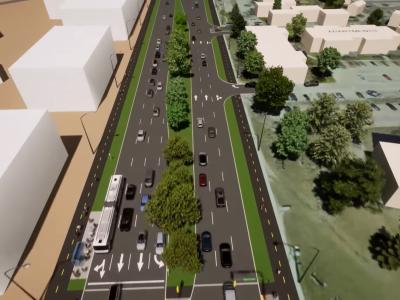One-in-three Manitobans feel the COVID-19 crisis currently causing health, social and economic upheaval in the province and around the globe is overblown, according to a new Probe Research survey.
When asked to agree or disagree with the statement "this whole issue of the Covid-19 virus is overblown for people living in this country," fully one-third of Manitoba adults - rising to nearly one-half among young men aged 18-34 - agreed with this statement. The proportion of Manitobans who feel the crisis is overblown also decreased significantly as the pandemic unfolded.
Self-Reported Behaviours Due to COVID-19
The COVID-19 pandemic has led to significant behavioural changes among Manitobans. More than eight-in-ten report they are washing their hands more, while six-in-ten indicate they are practicing social distancing to some degree by avoiding large groups of people. One-third, meanwhile, have cancelled upcoming trips and events, with a similar proportion saying they have stocked up on essential items. Nearly one-in-ten – representing nearly 90,000 adult Manitobans - say they have not done any of these things.
The proportion of Manitobans engaging in these behaviours has steadily increased since the pandemic began. The most dramatic increase can be seen in the proportion of residents who say they are avoiding other people by self-isolating.
Perceptions of the Government Response
Nearly all Manitobans are interested in getting more information about how the provincial government is dealing with the pandemic, with three-quarters confident that the federal, provincial and municipal government will work together to respond effectively to the crisis. Somewhat fewer people - six-in-ten - are confident the provincial government is prepared to deal with the COVID-19 outbreak.
Economic Anxiety Caused By COVID-19
Nearly nine-in-ten Manitobans, meanwhile, are worried about the economic effects of the COVID-19 pandemic on them personally. This concern cuts across all socio-economic groups and other demographic sub-populations.
Expectation of Deaths From COVID-19
Although (as of March 27) there have been no COVID-19 fatalities in Manitoba to date, more than eight-in-ten expect Manitobans will die from this virus. The proportion of Manitobans who are most convinced that COVID-19 will lead to deaths in the province increased significantly as the crisis deepened.
About the Probe Research Omnibus
For more than two decades, Probe Research has undertaken quarterly omnibus surveys of random and representative samples of Manitoba adults. These scientific telephone surveys have provided strategic and proprietary insights to hundreds of public, private and not-for-profit clients on a range of social, cultural and public policy topics. The Probe Research Omnibus Survey is the province’s largest and most trusted general population survey.
Disclosure Statement
Probe Research is a member of the Canadian Research Insights Council (CRIC) and confirms that this research fully complies with all CRIC Standards including the CRIC Public Opinion Research Standards and Disclosure Requirements. Learn more at: https://www.canadianresearchinsightscouncil.ca/standards/por/
Methodology
Between March 10 and 24, 2020, Probe Research surveyed a random and representative sampling of 1,000 adults residing in Manitoba.
With a sample of 1,000, one can say with 95 percent certainty that the results are within ± 3.1 percentage points of what they would have been if the entire adult population of Manitoba had been surveyed. The margin of error is higher within each of the survey’s population sub-groups.
Modified random digit dialing, including both landline and wireless numbers, ensured all Manitoba adults had an equal opportunity to participate in this Probe Research survey. A CATI-to-web approach was employed whereby a live-voice operator randomly recruited respondents by telephone, inviting them to complete the survey via a secure online questionnaire. In addition, 265 randomly recruited Probe Research panel members were included in this general population adult sampling.
Minor statistical weighting has been applied to this sample to ensure that age and gender characteristics properly reflect known attributes of the province’s population. All data analysis was performed using SPSS statistical analysis software.




